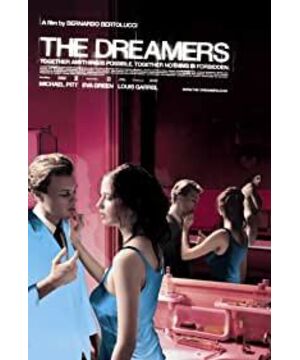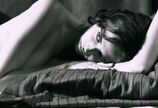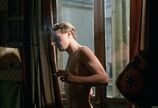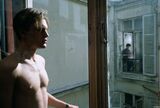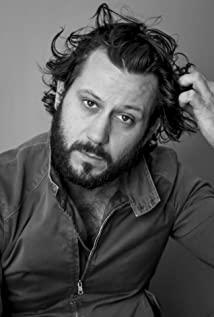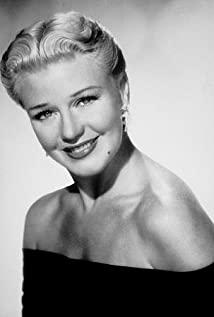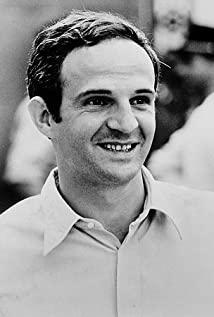In another 20 years, how will we look back on the "our era" 2000-2019? The new pants sang in 1998: The day has finally come/Everything changes/No more worries/Everything is love. Of course, in the summer of 2019, when I heard Peng Lei sing this very 1960s-style song, nothing seemed to have changed much. There were still some troubles, and love couldn't solve all problems. Lou Ye, who was born in 1965, looked back at his time in 2006 with Summer Palace, which you can think of as a parody or homage to Prague Love, but Kundera was 55 years old in Looking back on my time in Prague in a foreign land-recalling the past is always a feeling of vicissitudes after half a century.
At the age of 62, Bertolucci used The Dreamer to look back on a special point in his youth, 1968. At the end of the BBC's documentary, he said: "I know I'm at a stage in my life - I'm convinced that making films keeps me alive, my life full, my passion, that's the only way to survive." Well, the same goes for watching movies.
Roger Ebert didn't like Bertolucci's "Nineteen Zero", but he liked "The Dreamer." I can relate to this: when a movie echoes private emotional memories, you can't put it down.
Very subtle, I personally think that Ebert's review is a good fit for a review of the past 20 years. Especially in the process of translation when you realize a creepy but helpless thing: self-censorship has become instinctive.
I wish you all a Happy New Year. There are Easter eggs at the end.
In the spring of 1968, the three planets of sex, politics and cinema collided to exert a gravitational influence on social reality. In Paris, what started as a protest against the ouster of Henri Langlois, the legendary founder of the French Film Archive, turned into a people-people uprising that threatened the French government. : Barricades, burning, burning, bombs, police-civilian conflict, crisis of belief. What seems puzzling today is that director Jean-Luc Godard and his films were at the center of the chaos at the time. And other New Wave directors and cinematography seem to be propaganda weapons for the revolution. Two memories of that time: In the spring of 1968, I was on vacation in Paris. The demonstrators erected a barricade at the end of the street where I was staying at the budget hotel on the Left Bank. A large number of police officers gathered at the other end. And I stood outside the hotel, sandwiched in the middle, with a panoramic view of the scene on both sides. As the police charged, I was pushed in front of them, and I shouted "tourist" as the rubber bat slammed into my leg to show my neutrality. It didn't take me long to realize that the police might think I was saying "scarred," which is French slang for diarrhea. I'm so unwise.
The second recollection is more pleasing. It was April 1969, and while driving past the Three Cents Cinema on Lincoln Avenue, I saw a long line of people with umbrellas on the sidewalk, waiting in the rain for the next performance of Godard's "Weekend." You can't afford to pay most Chicago moviegoers to see a Godard film today, but at the time, after the "Battle of Grant Park" the year before. The anti-war protests in Beijing), when the anti-Vietnam War sentiment reached its peak, we and the people of Paris were on the same front. Oh, and of course sex. In the summer of 1969, I was in Hollywood writing the script for "One Flew Over the Valley of Beauty" for Ross Meyer. This is supposed to be an R-rated movie from 20th Century Fox, and although it looks boring today (probably an R-rated movie), it was a sex that entered the mainstream film circle and was running in with the overall social consciousness. important moment.
The reason I'm immersed in reminiscences of my own past is because I've just finished watching Bernardo Bertolucci's "The Dreamer," and it's full of heart-pounding but heart-wrenching nostalgia. The group of 16-year-olds in 1968 are now over half a hundred years old, so most young movie fans will feel that this movie is as full of history as "Cold Mountain".
For me, this is the world of yesterday; especially when it evokes a time when films—good films, old classics or new films—were at the center of young people's cultural life, the "movie generation", Time Magazine called us that in its cover story. I also got a job at the Chicago Sun because of the movie; they looked around in the feature group and assigned a new guy with long hair, because He once wrote a story about the Monday night underground movie in Chicago.
Bertolucci is two years older than me. The Italian was just 24 years old when he made his first major feature film, "The Eve of the Revolution," and in 1972 he will make "Last Tango in Paris," a film by Marlon Brando and the fledgling Maria Snyder's film is a tragedy about loss, grief, and sudden sex between two strangers, which they see as a form of urgent communication. Pauline Kael once said, "Bertolucci and Brando have changed the face of an art form." Well, that's how we talked in those days cinematique.
It's worth remembering these backstories when you go to see "The Dreamer," because Bertolucci certainly did. His film, like "Last Tango," has the main story set in a spacious Parisian apartment. It's about sex and love that transcend moral boundaries. Outside the window, there is a riot in the street, and then in a moment of obvious symbolism, a brick is thrown through the window and saves the lives of the three protagonists, the revolution breaking their closed triangle.
The three protagonists are Matthew (Michael Pitt), a young American from San Diego who comes to Paris to study for a year but actually spends most of his time in the film archive; twin sister Isabelle (Isabel) Eva Green) and Theo (Louis Garrel) are the children of a famous French poet and his English wife. The trio devoted all their time to the movie. One of the first things Isabel told Matthew was "you're too clean for a movie-goer".
Matthew's cleanliness is reflected in many ways. He is a childish, idealistic American, and when the film brings him to meet these strange Europeans, his experience is similar to that of Henry James. writer) in this decadent continent is exactly the same.
They are both sons of cinema. Isabelle told Matthew: "I was born on the Champs-Élysées in 1959, and the first thing I said was The New York Herald Tribune!" At this time, Bertolucci switched to Godard's "Essentials". The opening scene of Exhausted (1959), when Jean Seibo shouts "The New York Herald Tribune" on the Champs-Elysees, also becomes one of the historic moments of the "New Wave". In other words, the "new wave", not her parents, gave Isabel life. There are many moments in the film where the characters test each other's film knowledge, or recreate what they think of a movie scene; a particularly lovely scene is Isabel's perfect imitation of Greta Garbo in "The Queen of Sweden" in the room. . Of course, there is also the heated quarrel between Matthew and Theo: who is greater Keaton or Chaplin? American Matthew of course knows the answer is Keaton, only the French will choose Chaplin.
But The Dreamer is not Bertolucci's version of "ordinary pursuits." In this apartment, sex becomes a testing ground and a battlefield for the revolutionary ideas that permeate the air. Matthew met the twins at a demonstration in solidarity with Langlois outside the Cinematheque (Bertolucci's footage of Jean-Pierre Leaud in the 1968 newsreel and in the The pictures in the film intersect, of course, we can also get a glimpse of Truffaut, Godard and Nicholas Ray). They invite Matthew back to their parents' apartment. The couple was about to go to the beach for a month, so the twins asked him to stay.
It was all pleasant at first. "I finally meet a real Parisian!" Matthew wrote to his parents. In the isolated, claustrophobic apartment, he finds himself drawn to the twins' sexual allure. One night he saw them sleeping together naked. Isabelle orders Theo to commit suicide (kneeling in front of a picture of Marlene Dietrich) after defeating Theo in a movie trivia game. But when Theo wins the game, he asks Matthew to have sex with Isabelle. Matthew is sometimes drunk, sometimes overexcited, sometimes driven by lust, but deep down he knows the absurdity of it all. And his traditional values also mark the end of the film: sex and film are just engines, and politics is the fast-moving train.
This is a very beautiful movie. Bertolucci was one of those great screen painters. In this film, he bathes his protagonists in the brilliance of those great films and pays homage to them in a charming way. Sometimes his film references are subtle, and you should check out this lovely scene: Matthew looks through the window as the rain falls on the glass, and the light passes through the glass to make the raindrops seem to run down his face.
This shot references a famous scene from Conrad Hall in Richard Brooks' Cold Blood (1967). Although Michael Pitt looks a bit like Leonardo DiCaprio, from that angle in this scene, he seems to be possessed by a young Marlon Brando at this moment. Another quote: As the three young men dashed down the stairs outside the door, they were followed by their massive back, a nod to The Third Man.
Due to its subject matter and some explicit nudity, the film is rated NC-17 for adults only. So Fox Searchlight initially considered cutting "Dreamers" into an R-rated film, but why not just release an uncut, original Bertolucci film? Sexual content is a reminder of the time and place of the video. Debating the film is like debating the difference between an A and an R and an NC-17: how to distinguish a film that is intended for an adult audience but is not pornographic. What's wrong with our society, turning a blind eye to violence and talking about sex change.
Bertolucci titled his film The Dreamer, and I think it's because his characters were dreaming until that brick broke the window and shattered the cocoon they spun for themselves, a tear gas And the real world of Molotov cocktails finally intervenes in their lives. What is clear is that Godard and sexual liberation never changed the world. It's just that at that time, things seemed to be the way they should be. Those who really care rarely go to the cinema or think too much about sex. They are driven only by money and power.
Matthew found himself unable to follow the siblings into a fantasy that the times had inspired in them. He turned and disappeared into the crowd, walking in the opposite direction. Perhaps, he is moving into the future, and he will be the director of this film.
2004/2/13
Original link
BBC Documentary: Cinema Sex Politics: Bertolucci Makes 'The Dreamers' part1
BBC Documentary: Cinema Sex Politics: Bertolucci Makes 'The Dreamers' part2
Easter eggs:
View more about The Dreamers reviews


